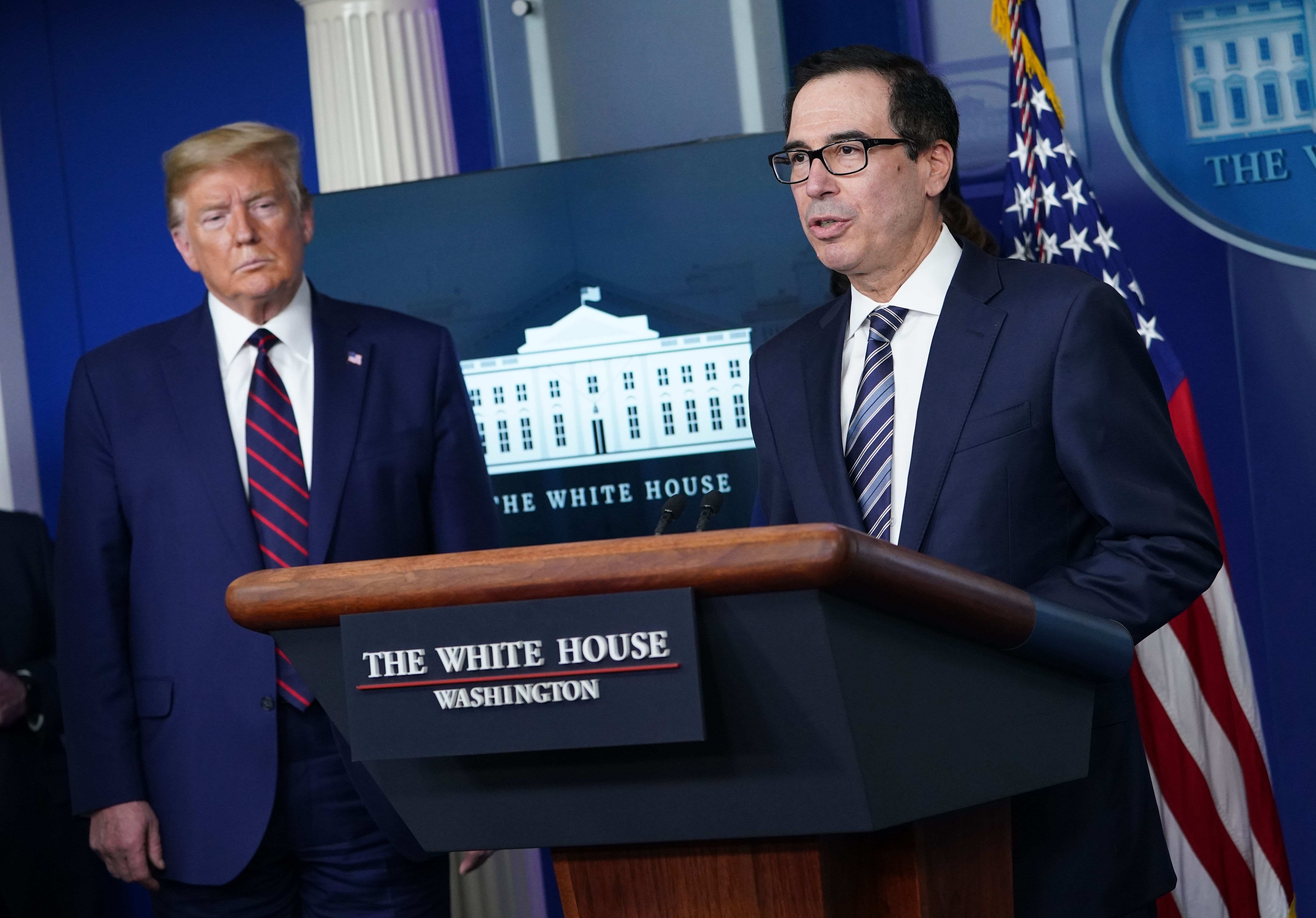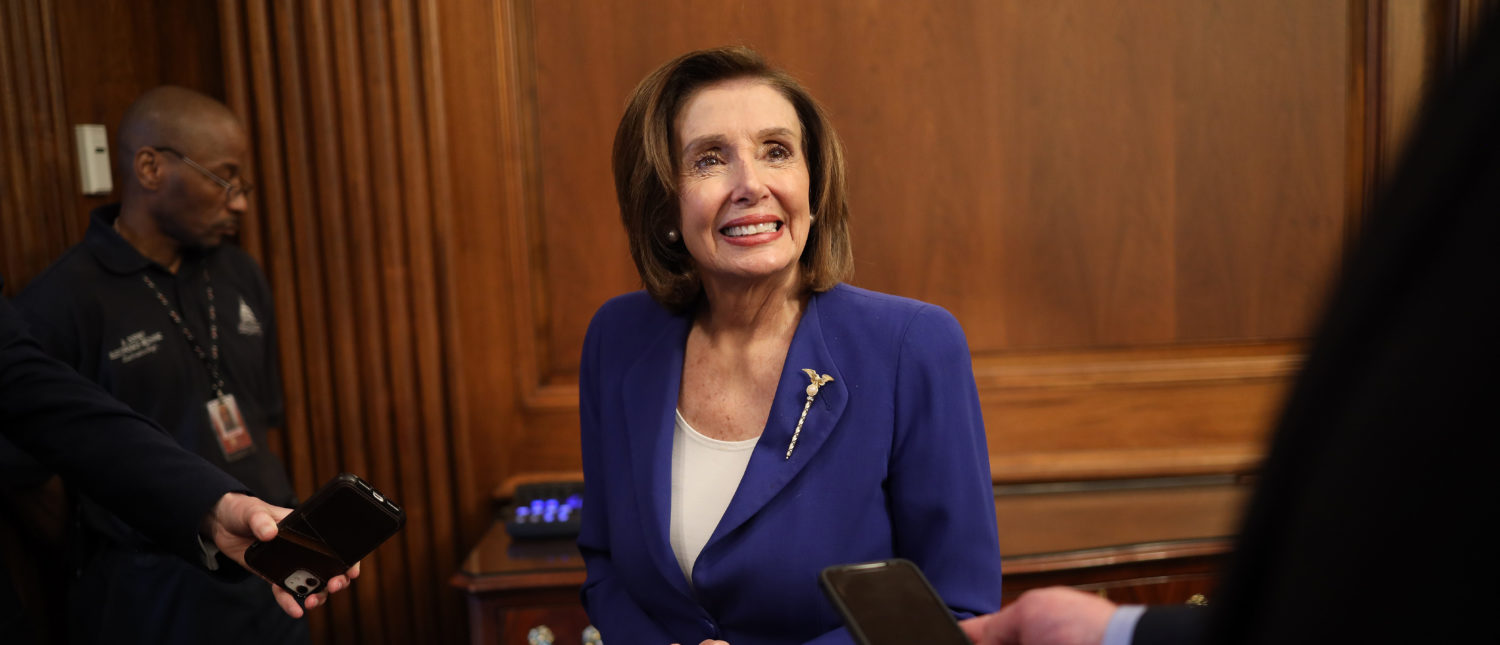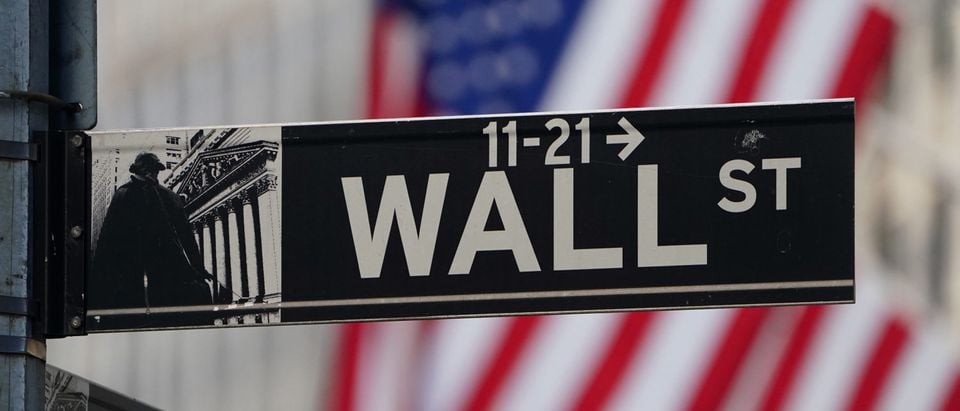- Venture capital and private equity firms are actively lobbying the Trump administration to allow them access to the small business bailout package passed by Congress.
- The Paycheck Protection Program, designed by Congress to manage the $350 billion in rescue funds, will dole out forgivable loans to businesses that employ no more than 500 people.
- Wall Street firms, however, argue that there are many companies in their portfolios that are considered “small,” but would not be eligible for loans under the guidelines.
Some of the wealthiest firms in the United States are lobbying the Trump administration for access to hundreds of billions of dollars in bailout loans that are specifically earmarked for small businesses faltering under the COVID-19 pandemic.
Congress authorized the Small Business Administration earlier in March to allocate $350 billion worth of rescue loans for small businesses hurting under sweeping lockdown orders spurned by the spread of coronavirus. While these loans are limited to businesses that employ no more than 500 people, there are major firms that are raising alarm over the interpretation of the guidelines.
Trump administration and Treasury officials have been actively courted by executives and industry lobbyists from big-name investment firms, according to the Financial Times. These firms argue that there will be massive job losses if smaller companies in their portfolio are denied assistance.
The debate centers around how the Small Business Administration (SBA) calculates the number of people employed by a business. The SBA doesn’t just include the number of employees in an individual business, but all other employees included in an investment firm’s portfolio.

US Secretary of the Treasury Steve Mnuchin speaks while US president Donald Trump listens during the daily briefing on the novel coronavirus, COVID-19, in the Brady Briefing Room at the White House on April 2, 2020, in Washington, DC. (Photo by MANDEL NGAN / AFP) (Photo by MANDEL NGAN/AFP via Getty Images)
Venture capital and private equity firms, which provide initial funding for startup companies to get on their feet, argue that business in their portfolio will be barred from the loan program — even if they are under the 500 employee threshold.
“We see no reason why being owned in a fund structure should result in these businesses having less access to the capital needed to keep their employees on the payroll,” Steve Nelson, the chief executive of the Institutional Limited Partners Association (ILPA), wrote in a letter delivered to Treasury Secretary Steve Mnuchin.
Members of the ILPA trade association include public pension funds that have invested in funds operated by Blackstone, Apollo and other Wall Street titans.
More specifically, Wall Street firms are targeting the Paycheck Protection Program, which Congress designed to manage the volume of loans that banks can provide to small businesses. These loans can be forgiven as long as the business does not let go of any workers.
The lobbying campaign is proving fruitful, with major lawmakers expressing concern about the fate of small businesses backed by private equity and venture capital firms.
“Many small businesses in our district that employ fewer than 500 employees, particularly start-up companies with equity investors, have expressed concerns that an overly strict application of the Small Business Administration’s affiliation rule may exclude many from eligibility for [Paycheck Protection Program] loans,” House Speaker Nancy Pelosi and Democratic Rep. Ro Khanna wrote in a letter to Mnuchin.
The debate is a local issue for Pelosi and Khanna, who represent the Bay Area and Silicon Valley in California, districts that are dotted with startups that have equity investors.

Speaker of the House Nancy Pelosi (D-CA) discusses the stimulus bill known as the CARES Act after the bill was passed at the U.S. Capitol on March 27, 2020 in Washington, DC. (Photo by Win McNamee/Getty Images)
At the same time, there are a lot of people opposed to the idea of handing out forgivable loans to such firms, arguing that they have plenty of capital to survive on their own.
“Private equity has trillions of dollars of money waiting to be spent,” Marcus Stanley, policy director at Americans for Financial Reform, said to Politico. “So it takes real chutzpah for these Wall Street titans to now say they need government assistance.”
Amanda Fischer, the policy director at the Washington Center for Equitable Growth, expressed similar sentiments. She said allowing private equity and venture capital firms access to these funds would push out “mom-and-pop” shops that don’t have the type of legal apparatus as the Wall Street firms do. (RELATED: March Jobs Report: 701,000 Jobs Lost, Unemployment Jumps To 4.4%)
“With such limited resources, policymakers should not be bailing out private equity general partners at the expense of small restaurants, barber shops and self-employed people,” Fischer said to Politico. “We saw from the 2008 crisis that private equity companies are some of the best-positioned firms after a crisis — gobbling up assets, increasing concentration and exacerbating inequality while workers and small business suffers. We shouldn’t repeat those mistakes.”
All content created by the Daily Caller News Foundation, an independent and nonpartisan newswire service, is available without charge to any legitimate news publisher that can provide a large audience. All republished articles must include our logo, our reporter’s byline and their DCNF affiliation. For any questions about our guidelines or partnering with us, please contact licensing@dailycallernewsfoundation.org.












